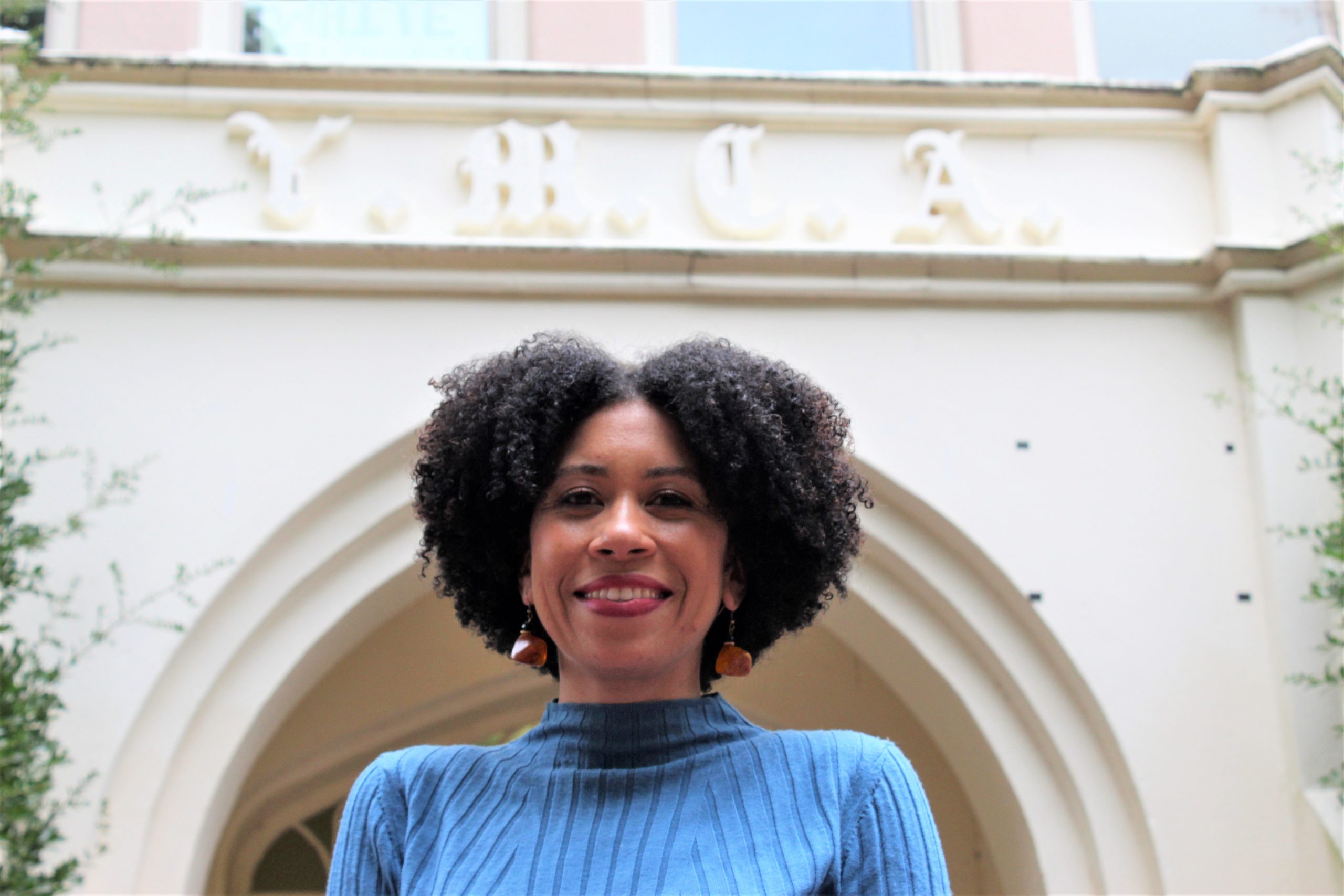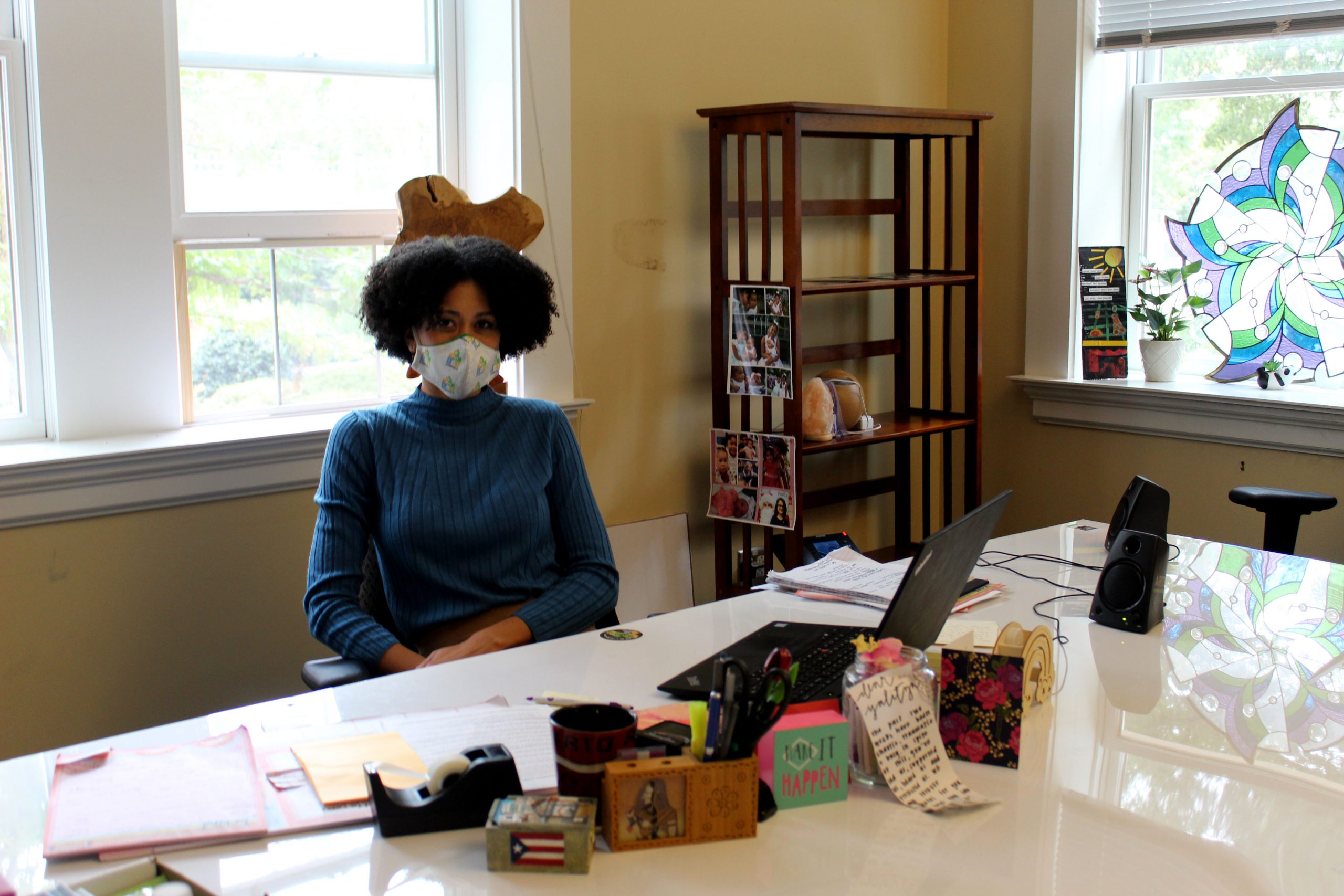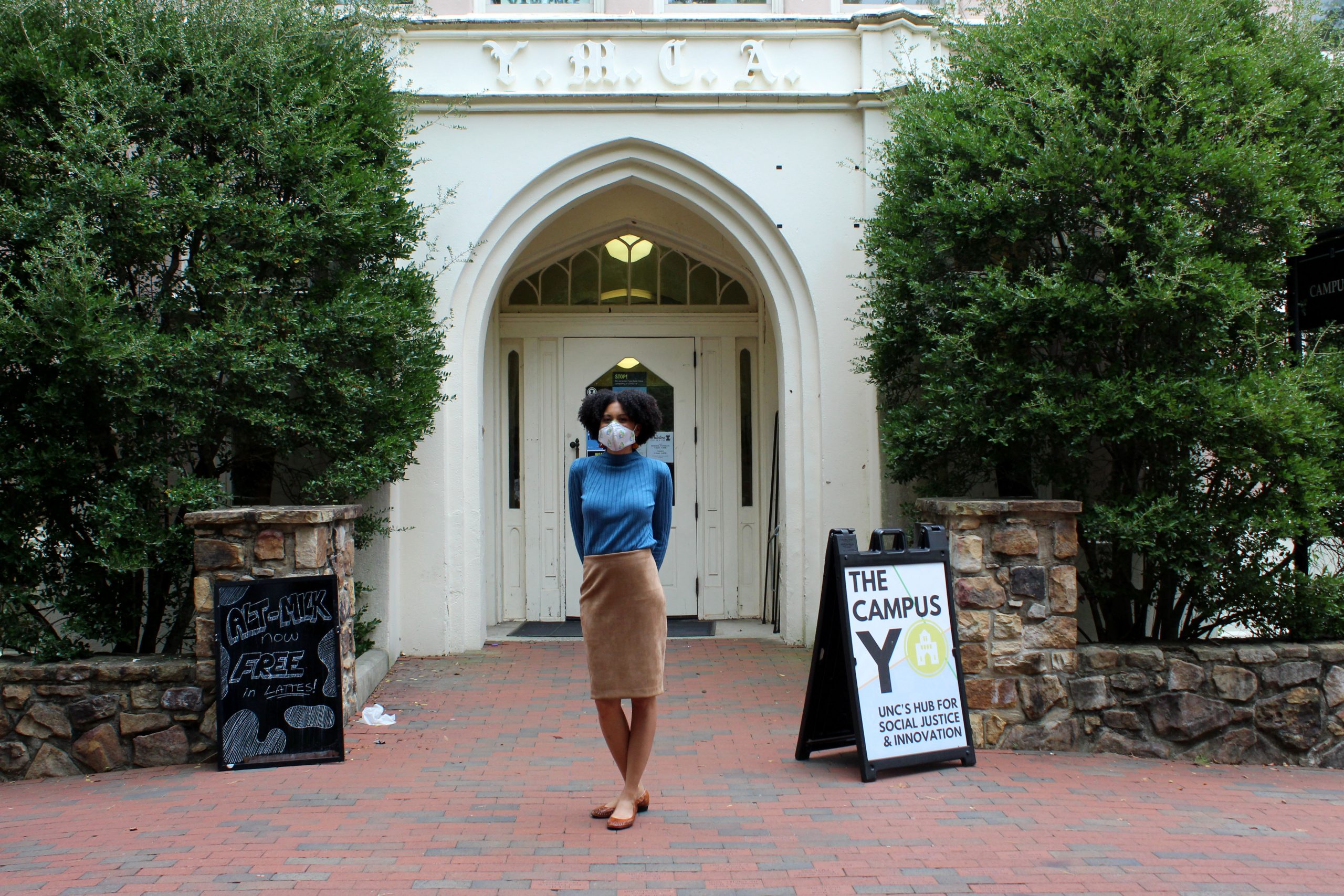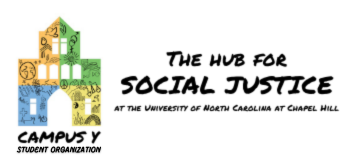
Yalitza Ramos announced as the new Director of the Campus Y
October 13, 2021 • • No CommentsOn August 26, UNC announced Yalitza Ramos as the new director of the Campus Y.
After earning bachelors’ degrees in Psychology and Spanish from UNC in 2005 and earning her master’s in social work from UNC in 2014, Yalitza returned to Chapel Hill as the director of the Bonner Leaders program and the assistant director of the Campus Y in 2017. As the director of the Bonner Leaders program, Yalitza connected work study students with local organizations and community partners. In January 2020, Yalitza was announced as the interim director of the Campus Y. Now, as Director of the Y, Ramos is overseeing all of the Y’s 32 student-run committees and programs, including the Bonner Leaders Program, the Global Gap Year Fellowship, and the CUBE social innovation program.
To learn more about Yalitza, her commitment to social justice, and her plans for the Campus Y, read our Q&A below.
Q: How did you first become involved with social justice?
Yalitza Ramos: Growing up in Binghamton, NY I had a strong sense of community. I am the daughter of a Puerto Rican revolutionary from East Harlem and an African American artist from Lumberton, NC. My parents met in college and they studied West African and Caribbean dance as a form of social justice. They were part of the community and action that started a Latin American Student Union at the campus and brought African dance and African American theater performances to concert halls, among other movements. They always taught us about the history of the dances, what each dance meant, and how it was used as a form of communication and celebration. There weren’t a lot of people in our community that looked like me. So, my parents were really adamant about connecting me and others with parts of our cultural identity and our heritage. They started a nonprofit to serve as a cultural resource center. My parents would go into schools, universities, churches, and neighborhoods teaching, sharing, and spreading their arts and culture. They created spaces out of necessity as well as out of a sense of pride.
We were all tasked with being a part of the spaces that they created. These spaces invited people to learn more about our culture and identity. We would always have a public community Kwanzaa celebration and there were other people in the community who would work with my parents who maybe didn’t share the same identities, but also wanted to bring aspects of their identity into the space. That was something that I noticed—that not only could we kind of celebrate who we were and share that with other people, but we could invite people to do the same. So, the conversations that we had with people, the kinds of celebrations, the kind of stories that they would share, they would happen because of those invitations and those events.
Q: How did that cultivation of space impact your journey here at Carolina?
Seeing my parents be leaders in my community inspired me. When I came to Carolina, I found myself really looking for a community like the one my parents had created at home and asking myself how do I build community in a brand new place? What does it look like to get off campus and be around people of diverse ages? It was really important to me to connect with the community outside of school. As many resources and opportunities as there are at Carolina, to me, there was a wealth of just as much, if not more, opportunities in the community to learn more about the people who live here and to build relationships with them.
In my undergraduate experience I was just trying to find my home base. I didn’t necessarily land at the Campus Y when I was an undergrad here and I didn’t really know and understand all that falls under the Campus Y. But at the time I knew that I wanted to be in schools. So, I volunteered for Chapel Hill Carrboro city schools. I knew that I wanted to connect with other students who were passionate about their cultural identities. So, I was a part of the Black Student Movement, I was a part of the Carolina Caribbean Association. I would participate in CHispA events and other kinds of activities. Getting off campus was something that I intentionally sought out. For me, it was a journey to the Campus Y. It wasn’t easy. I pieced together volunteer opportunities and extracurriculars that were meaningful, but I never had a place or experience that centered my efforts, my identity, my professional pursuits. My home base. And during my undergrad experience, I didn’t realize there was one place that encompassed so many of my passions.
Q: Before becoming Director of the Campus Y, you were the assistant director of the Campus Y and director of the Bonner Leader program. Can you tell me about your experience in these roles and your time at the Campus Y before becoming director?
Understanding that the Campus Y was where all of the experiences that I was trying to piece together while I was in undergrad is what ultimately brought me to the Y as a staff person. When I found out about the Bonner program, I was excited that there was a space in the Campus Y for students who were committed to engaging with the community through service and leadership and who were eligible for the work-study program because that was something that really resonated with me. I immediately connected with the vast experiences of the Bonners and the community they were forming. The program represented everything I was looking for as an undergraduate student.
And then through looking at that program, I discovered sort of all the things that the Campus Y does that students are passionate about, their lens and approach to social justice and what that means to them. And I thought it was exciting. This is a place where you don’t have to choose just one thing that you care about. As a student, you can really practice it, you can live it, you can learn about it, and build relationships with others along the way. And you can do that through a number of different perspectives and avenues. And that’s really exciting to me.
My roles as assistant director and Bonner director have informed my approach to leadership of the Y as director. It is inclusive leadership, driven by the input, feedback, and drives of the communities we work with, and at the center of that are students’ experiences and voices.

Q: Now that you’re the director of the Y, what are your goals for the campus Y for this upcoming school year?
For this year we’re really focused on rebuilding and inviting and re-inviting people to participate in this space. This is something that is not only important to me, but to the student leaders and the staff here. We want to welcome people here who might not have otherwise been engaged with the Y. We want to reconnect with people who we might have gotten disconnected from during the pandemic. We want students, alumni, faculty and the community to know that there is a space for them here at the Y. We want to inspire a proactive, inclusive network of social change makers.
And there are a lot of things that our students and our communities are facing right now that have made it more challenging to be in community with each other. We are facing incredible mental health challenges, racial trauma, identity-based threats to safety, poverty and other exacerbated disparities illuminated by the pandemic. So, finding out what our students and committees need right now, what support they’re looking for to amplify their work, and what kind of support the members of the Y really need to feel like they belong and feel included in this space—that’s something that’s really important to me.
I hope something that will come out of this year is more of a focus on well-being and spaces of joy and how we can show up for each other, seeing each other as people and people first.
Q: What part of serving as the director of the Campus Y are you most looking forward to?
I’m most looking forward to working closely with the student leaders of the Campus Y to make their vision for the Y a reality. Whether that’s continuing the kinds of conversations that I’ve been having with students, or seeing new faces and engaging with people who have never stepped foot into the Y and talking about what’s important to them and what they think the Y should be and how the Y can support their causes. It’s exciting to me to see kind of renewed energy on what this space can be for people. I’m excited to see what happens next with that.
Q: The Y has been on campus for 161 years. Why is it still important for UNC?
It’s important for people to see that students’ voices matter and they enact change. I think what the Y’s history shows us is that when students put their mind to something, positive change can happen, and that’s so important. And I think this space cultivates that, but also is a physical space that students can come to and discuss important issues or look for others who are passionate about causes that align with what their passions are. For me, the Campus Y is both a physical and a metaphorical space for connection. Something that I hear, whether it’s an alum who graduated 50 years ago to today, is that there’s something about this place that feels really special. The Y either inspires people to pursue a pathway that they didn’t consider when they first came to Carolina or this is the place where they built the relationships that they still have years and years later. To me, the Campus Y is a place where people come to learn more about themselves and what’s important to them.
Q: Are there any particular social justice issues that you’re passionate about? If so, how will you promote or shed light on these issues as director of the Campus Y?
I’m really passionate about education and opening access to educational opportunities. I think the Y is a place that looks at education from a lot of different lenses, whether it’s how do we address curriculum in the schools, or how do we address the school to prison pipeline, or how can we build capacity for volunteers in the area? And at the higher education level, how do we make sure that we’re creating space for undergraduates and graduate students to feel like they’re a part of this campus? Is this a space where students can have conversations that they can’t have anywhere else, where they can share their stories? Ultimately, I really want students to feel like they belong here and have a voice.
And I share this idea of racial equity and building inclusive spaces at the Y with our current student leaders, Patrice and Montia. What kind of training do we need to have to facilitate more dialogue? What kind of support do our students need to make sure that we have an equity lens and not just racial equity, but wholistic equity lens, throughout the Y in our programs?
Q: Is there anything else you’d like to add?
I’m really grateful that I’ve been able to build relationships with students in this space. And I hope to invite others who have felt like the Y is important to them to come and share their stories with me. Whether it’s alum or just students that I don’t know personally, I’m really looking forward to getting to know them better and supporting them in any way I can.
This interview has been edited for length and clarity.


